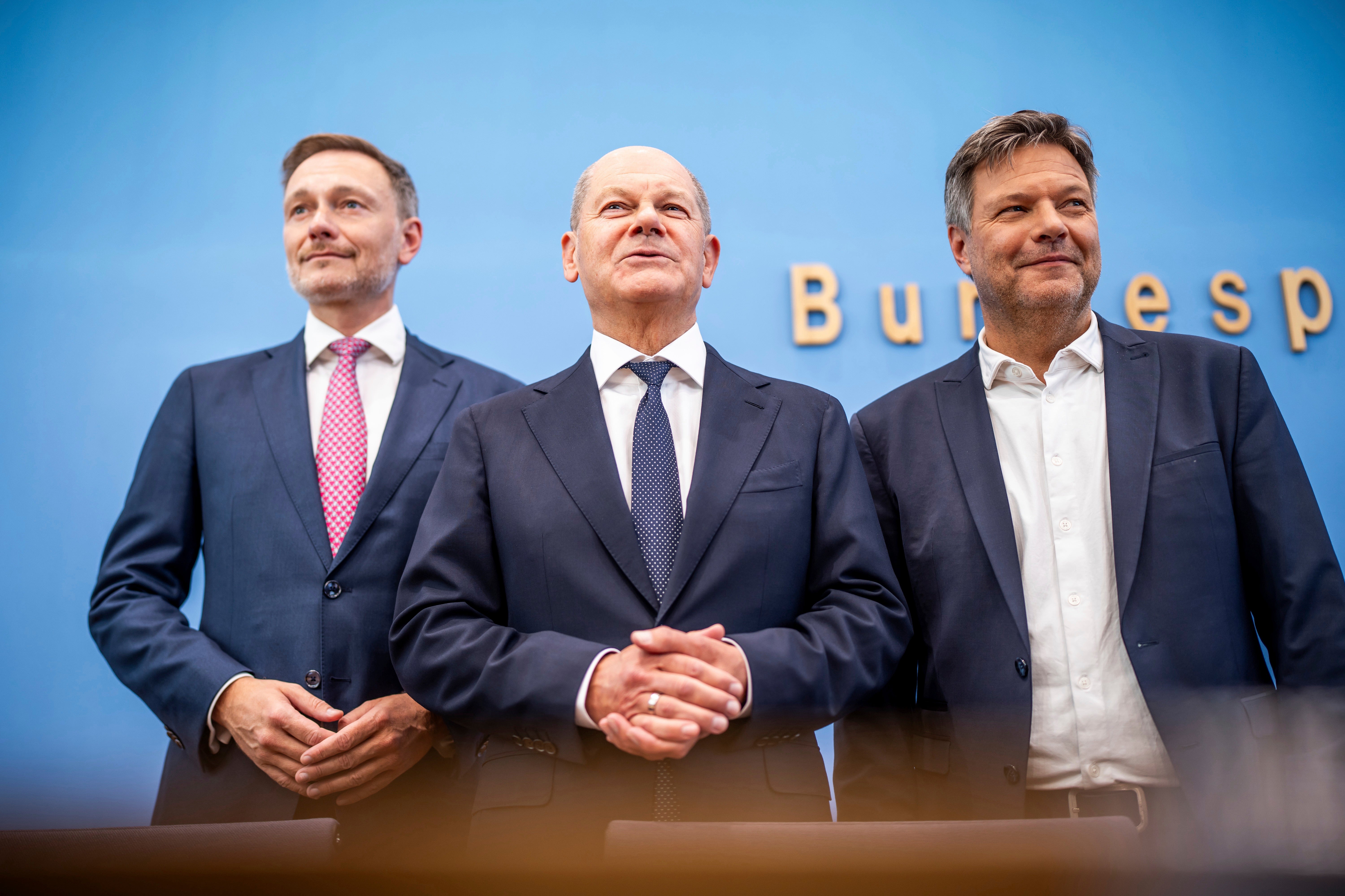Germany's quarrelsome government clinches a deal on the 2025 budget
Germany’s quarrelsome governing coalition has reached an agreement on details of the country’s 2025 budget

Your support helps us to tell the story
From reproductive rights to climate change to Big Tech, The Independent is on the ground when the story is developing. Whether it's investigating the financials of Elon Musk's pro-Trump PAC or producing our latest documentary, 'The A Word', which shines a light on the American women fighting for reproductive rights, we know how important it is to parse out the facts from the messaging.
At such a critical moment in US history, we need reporters on the ground. Your donation allows us to keep sending journalists to speak to both sides of the story.
The Independent is trusted by Americans across the entire political spectrum. And unlike many other quality news outlets, we choose not to lock Americans out of our reporting and analysis with paywalls. We believe quality journalism should be available to everyone, paid for by those who can afford it.
Your support makes all the difference.Germany's quarrelsome governing coalition reached an agreement Friday on details of the country's 2025 budget, weeks after Chancellor Olaf Scholz and top officials clinched an initial deal that then got bogged down in a new dispute, further damaging the unpopular government's image.
Scholz has run a three-party coalition of his center-left Social Democrats with the environmentalist Greens and the pro-business Free Democrats since December 2021. The alliance, which brings together parties that weren't traditionally allies, has become notorious for frequent infighting and on several occasions has reopened hard-fought policy agreements.
Financial issues have become a particular bone of contention. Finance Minister Christian Lindner and his Free Democrats have been particularly adamant about saving money to adhere to Germany's strict self-imposed rules on running up new debt, and the coalition also agreed at their insistence in 2021 not to raise taxes. Members of the other parties have been keener on exemptions from the so-called “debt brake.”
In November, Germany’s highest court annulled a government maneuver to repurpose 60 billion euros ($66 billion) originally meant to cushion the fallout from the coronavirus pandemic for measures to help combat climate change and modernize the country. That forced the coalition into a hasty rehash of the 2024 budget, complete with subsidy cuts that prompted protests by farmers.
The governing parties squabbled at length about how to put together a 2025 budget before Scholz, Lindner and Vice Chancellor Robert Habeck, from the Greens, presented an agreement in early July. That included higher spending on defense and affordable housing, along with a stimulus package for the country's economy, Europe's biggest.
In recent weeks, Lindner has raised public concerns over some details of the agreement, drawing sharp criticism from senior figures in Scholz's party and prompting a new round of negotiations. The disagreement centered on how to reduce a financing gap of about 17 billion euros.
A government statement announcing Friday's agreement said the gap has now been reduced to about 12 billion euros, largely by restructuring how money will be provided to the national railway. The budget now goes to lawmakers for consideration.